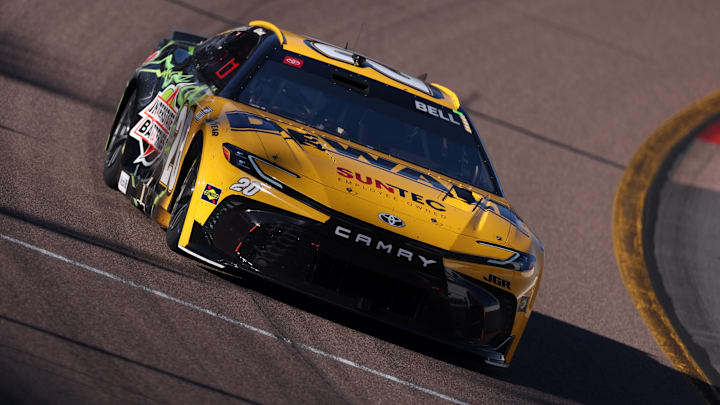All we usually hear about during the latter stages of a NASCAR Cup Series season, or even after a season concludes, is what the point standings would have looked like if the playoffs didn't exist.
But what if we went a step further and only based those standings on the actual race results, rather than what are effectively meaningless stage results?
Stage racing was added to the Cup Series in 2017, and because of how points are awarded during races, the race winner can actually end up with only the 11th highest point total in a single race, while the 16th place finisher can technically lead all drivers in points.
If the idea is "fairness", then running sixth instead of eighth in the middle of some random April race really shouldn't have any effect on determining a season-long championship based strictly on race results, should it?
Of course, one thing to consider is the fact that every single driver and team would approach things differently if a full-season points format were in place, and that would be altered even further if stage racing were no longer utilized. Let's not forget that winning stages literally contributes to a driver's playoff point tally, and this wouldn't matter if there were no postseason.
But there will always be "if, if, if" scenarios here. What if NASCAR used a Formula 1 points format? What if NASCAR used an IndyCar points format? What if NASCAR went back to one of the old points formats instead of the modern format?
So for the purpose of simplicity, we've simply added up points scored directly from race results. And while 2025 champion Kyle Larson also would have led the series in total points scored, he wouldn't have even been inside the top three if we get rid of stage racing.
In fact, neither one of the top two in these standings even made it to the Championship 4, and the highest driver in points among those who did is actually a bit of a surprise.
Here's how a purely results-based season would have translated to the 2025 point standings, if we keep the modern points structure in place.
NASCAR Cup Series point standings based on race results
1 - Christopher Bell - 954 (0)
2 - Chase Elliott - 902 (-52)
3 - Chase Briscoe - 893 (-61)
4 - Kyle Larson - 872 (-82)
5 - Ryan Blaney - 839 (-115)
6 - Denny Hamlin - 830 (-124)
7 - Tyler Reddick - 820 (-134)
8 - William Byron - 819 (-135)
9 - Joey Logano - 795 (-159)
10 - Chris Buescher - 786 (-168)
11 - Ross Chastain - 779 (-175)
12 - Ryan Preece - 769 (-185)
13 - Alex Bowman - 709 (-245)
14 - Ty Gibbs - 689 (-265)
15 - Kyle Busch - 687 (-267)
16 - Michael McDowell - 681 (-273)
17 - Bubba Wallace - 679 (-275)
18 - Brad Keselowski - 672 (-282)
19 - Erik Jones - 608 (-346)
20 - John Hunter Nemechek - 602 (-352)
21 - Shane van Gisbergen - 598 (-356)
22 - Austin Dillon - 589 (-365)
23 - Daniel Suarez - 581 (-373)
24 - A.J. Allmendinger - 578 (-376)
25 - Zane Smith - 576 (-378)
26 - Todd Gilliland - 575 (-379)
27 - Josh Berry - 563 (-391)
28 - Carson Hocevar - 558 (-396)
29 - Austin Cindric - 546 (-408)
30 - Justin Haley - 537 (-417)
31 - Ricky Stenhouse Jr. - 513 (-441)
32 - Cole Custer - 483 (-471)
33 - Ty Dillon - 448 (-506)
34 - Noah Gragson - 431 (-523)
35 - Riley Herbst - 389 (-565)
36 - Cody Ware - 229 (-725)
What will NASCAR's playoff format, if there still is one, look like in 2026? Will any playoff changes lead to any changes when it comes to how points are awarded or how stage racing is conducted? The season is scheduled to get underway on Sunday, February 15 with the 68th annual Daytona 500 at Daytona International Speedway.
